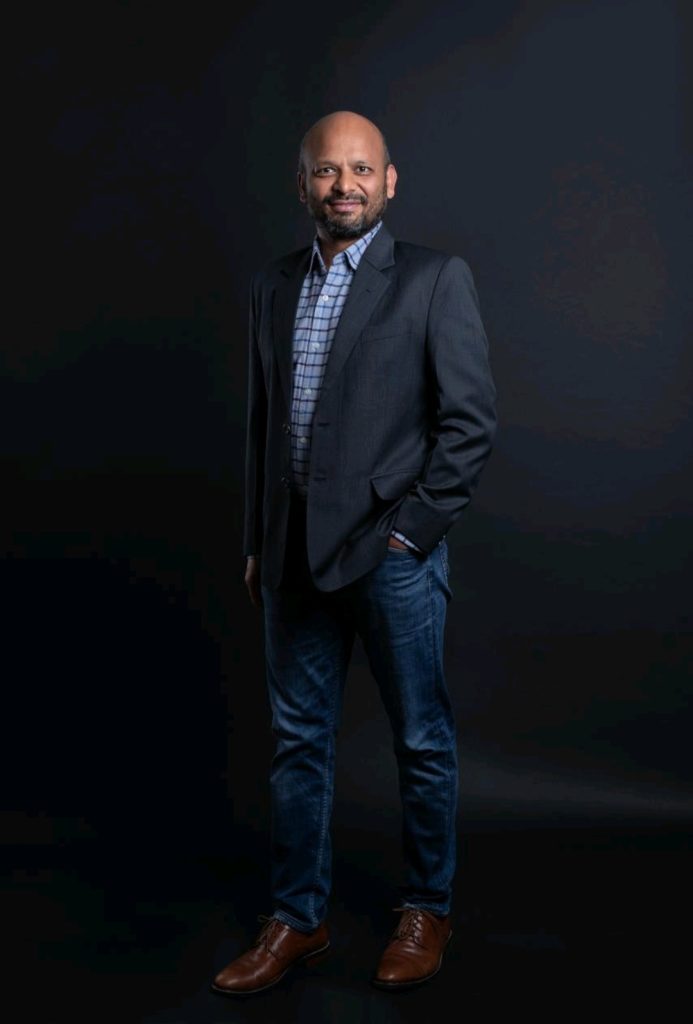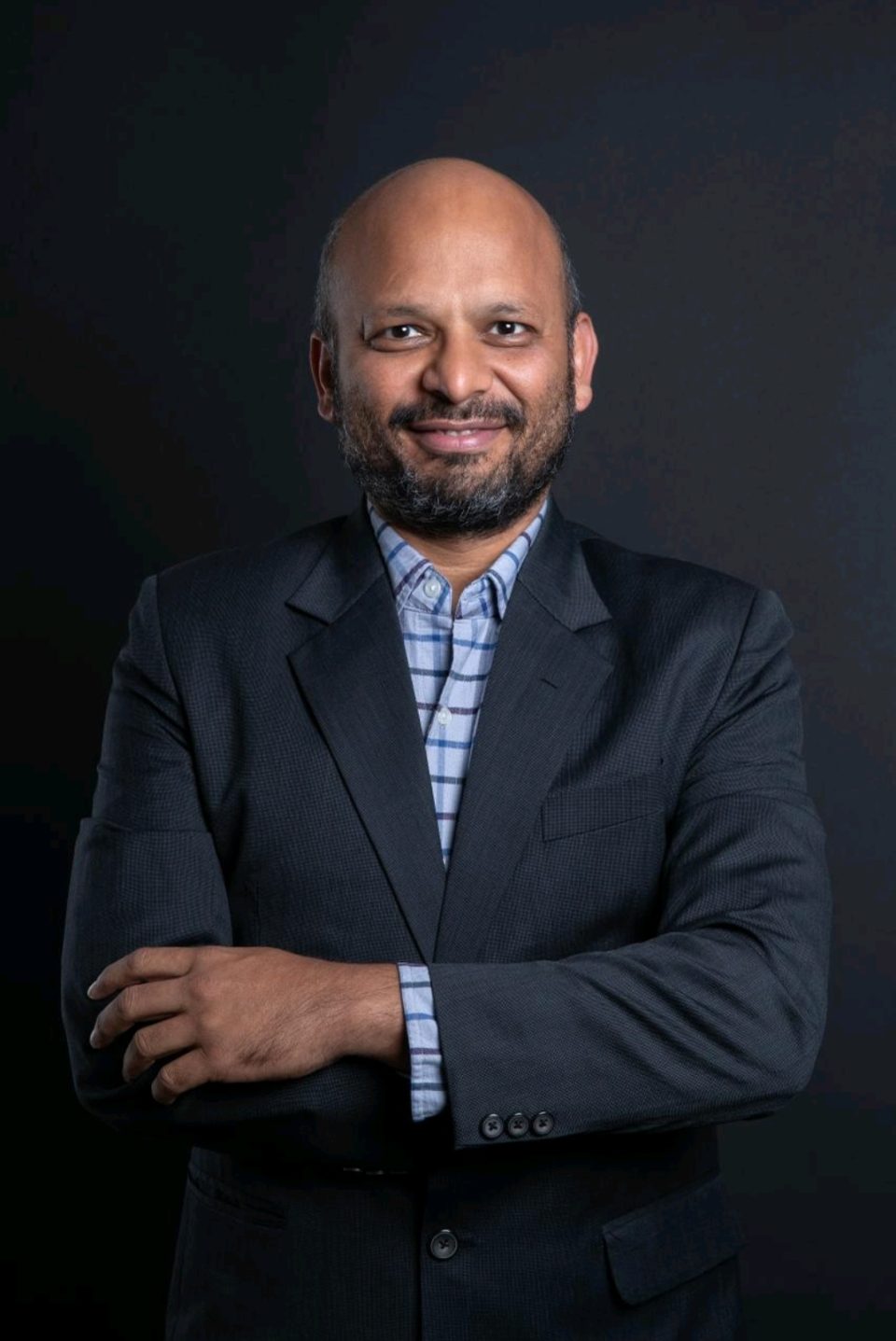In an age where customer trust is built on digital transparency and data responsibility, safeguarding sensitive information is no longer a backend IT concern—it’s at the heart of customer experience. At the forefront of this transformation is Vishal Gupta, the visionary Founder and CEO of Seclore. A trailblazer in data-centric security, Vishal has redefined how global enterprises approach information protection, privacy, and regulatory compliance.
From humble beginnings at IIT Bombay’s incubation program, Vishal’s entrepreneurial spirit took root in 1999 and has since grown into an industry-defining legacy. With over two decades of leadership, he has spearheaded Seclore’s evolution into a global force, ensuring that businesses can empower users without compromising security.
In this exclusive CX Quest interview, Vishal opens up about his journey—from building Herald Logic to leading Seclore into international acclaim, the challenges of balancing user experience with airtight security, and why data-centric protection is the new pillar of customer loyalty. We also explore the future of cybersecurity through the lens of CX, and how Seclore continues to challenge conventional norms by putting data first, wherever it goes.
Vision & Foundations
Q1. You founded Seclore over a decade ago. What core problem were you aiming to solve then, and how has that evolved in the CX-driven digital economy of today?
VG: Seclore has unique origins since it’s one of the few companies which started by identifying a problem rather can creating a technology. The specific problem that Seclore started with was that of secure outsourcing. One of the biggest concerns for enterprises in process outsourcing was around security and compliance with data shared with outsourcing partners globally. In creating a solution to that problem, we realized we had created something far more generic which has today evolved into Seclore’s data centric security platform.
Today we solve the problem of data protection and regulatory compliance for the largest enterprises and governments in the world. This enables enterprises to fast-track their digital transformation journeys and adopt AI and Cloud technologies at a rapid pace.
Q2. Seclore emerged from the IIT Bombay incubation program. How did that academic environment shape your business vision and innovation style?
VG: Seclore’s journey began at IIT Bombay’s Society for Innovation and Entrepreneurship (SINE), where the academic environment emphasized rigor and completeness. This focus helped us to design usability AND security built into the base platform. The collaborative atmosphere and access to cutting-edge research at IIT Bombay played a pivotal role in shaping our innovation-driven mindset.
SINE’s structured support—ranging from subsidized infrastructure to mentorship and industry connections—allowed us to focus on refining our data-centric security solutions without the typical resource constraints faced by early-stage startups.
CX and Data-Centric Security
Q3. In what ways does Seclore’s data-centric approach contribute to improving customer experience for your clients?
VG: We’re witnessing a paradigm shift from infrastructure-centric to data-centric security models. Enterprises have spent too much time and energy protecting “infrastructure” e.g. devices, networks, applications, in the hope of protecting data. This has led to the enterprise chasing the data wherever it goes to cloud, third parties, and personal devices. This has become an impossible chase since enterprise users want to collaborate freely. Seclore helps enterprises focus on protecting the real asset, i.e. data. By embedding security and privacy into data itself, enterprises can make free choices of who they share data with and how. This leads to faster digital transformation via cloud and AI adoption.
Q4. How do you ensure security measures don’t become a bottleneck to customer agility and usability?
VG: Security and collaboration are usually seen as mutually conflicting goals. Security systems generally come in to prevent users from doing something. Seclore has taken a contrarian approach to this rule.
With security and privacy built into the data itself, collaboration restrictions, both internally and with third parties, can go away. The choice of technologies used for collaboration e.g. Email, file sync-and-share services, messaging apps can ALL be used together with a uniform security posture for data.
With process and decision automation, Seclore has removed the need for business users as well as security teams to “manage” the system. The whole data protection objective is achieved therefore, with little to no overhead thus enhancing usability.
Success Story
Q5. Can you share a success story where Seclore helped a client drastically improve both data compliance and customer trust?
VG: Seclore works with some of the largest companies in the world and many in the global Fortune 100. One of the notable examples of value creation is our collaboration with a leading global financial services company. The company has more than 100,000 employees spread across nearly 80 countries in the world. The company collaborates with thousands of third parties across the world which provide services like data entry, debt collection, customer service, regulatory compliance handling etc. These third parties were receiving the most confidential data from the company including customer and employee data.
The challenge in this context was that except for legal contracts / NDAs there was no method for the company to monitor or control how these third parties were handling confidential data sent by the company. The result was expensive third-party audits, complicated collaboration technology and compliance breaches.
With Seclore, security and privacy are now embedded into the data being shared. The data also sends back telemetry information about its location and usage which makes compliance reporting a breeze. The company was thus able to adopt a uniform cloud platform for third party collaboration as well reduce compliance costs with Seclore.
This case exemplifies Seclore’s data-centric security approach, which mitigates risks and fosters a secure and trustworthy environment for external interactions.
Leadership & Strategy
Q6. You’ve raised significant funding rounds. How do investor expectations align with your customer-centric goals?
VG: Seclore has been extremely efficient on the capital front where we have more than two dollars of revenue for every dollar of capital utilized. This has more than met investor expectations and has helped us stay focused on customers.
Q7. Seclore operates globally. How do you ensure consistent customer experiences across such diverse geographies?
VG: Delivering a consistent customer experience globally requires a blend of standardized processes and localized adaptations. We maintain a unified platform that offers consistent functionality, while our regional teams tailor implementations to align with local regulations and cultural nuances. Strategic partnerships extend our reach, ensuring clients receive timely and contextually relevant support. This hybrid approach ensures that our global clientele experiences the same level of excellence, irrespective of their location.
Q8. What role does customer feedback play in shaping your product roadmap?
VG: Customer feedback and co-innovation are the cornerstone of our innovation. We actively engage with clients to understand their evolving needs, challenges, and aspirations. This feedback informs our product development, ensuring that our solutions remain relevant and impactful. For instance, client insights enhanced our risk insights dashboard, providing more granular visibility into data usage patterns. By fostering a feedback-driven culture, we ensure our offerings evolve with our clients’ needs.
Tech & Innovation
Q9. What innovations are you most excited about in the realm of cybersecurity and CX?
VG: I think the role that AI can play in cyber security is very exciting to me. This has many implications, i.e.
1. AI can help reduce customer friction in using security systems by smart decisioning and recommendations
2. AI can help automate security administration tasks and therefore help in reducing the significant cybersecurity skills gap that exists in the world
3. AI can help in heterogeneous regulatory compliance by smart interpretation of privacy regulatory frameworks
The list is endless, but all of these are areas that Seclore’s team is actively working on
Seclore’s Digital Asset Classification incorporates and integrates-with some of the latest AI/ML techniques to segregate data, Auto-protect documents, emails and cloud repositories and prevent AI systems from ingesting highly confidential data.
The Human Side
Q10. You’ve lived and worked across continents. How has that influenced your perspective on customer engagement and security needs in different markets?
VG: Living and working across 4 continents has helped me become adaptable and resilient. With the diversity of experience, I am able to see the uniformity of customer expectations across the globe as well as appreciate local nuances. My takeaways are that the world is more uniform than most people think. What drives people, their inhibitions and fears, their goals etc. are largely the same. This has helped Seclore in driving the global customer engagement programs and also reflect it in the Seclore product.
Q11. As a leader, how do you personally stay connected to Seclore’s customers and their evolving needs?
VG: There is nothing to replace direct customer engagement. Seclore works with some of the largest enterprises in the world including American Express, Ford, GM, Aramco, HDFC and the United Nations. Ensuring that customer engagement and feedback is flowing smoothly and, in many cases, directly engaging with customer representatives myself helps to keep me grounded to customer requirements.
Looking Ahead
Q12. Where do you see the intersection of customer experience and data security heading in the next five years?
VG: I think customer experience of the (near) future is largely going to be defined by automation and AI. Being able to anticipate the customer needs and coming up with either smart recommendations or complete automation in every aspect is going to be the defining force in CX. This is also true for data security, where business users and security teams are both big stakeholders. Automating away the need for end users OR security administrators to do ‘anything’ is going to be key to effective data security.

Q13. What’s your advice to startups looking to blend CX seamlessly with cybersecurity from day one?
VG: For startups, the key is to view security not as an afterthought but as a foundational element of customer experience. Embedding security into your product design from the outset ensures that you won’t face significant overhauls to address security gaps as you scale.
Start by adopting a data-centric security approach, where protection travels with the data, regardless of location. This ensures that your data remains secure as it moves across platforms and devices. Additionally, leverage automation to enforce security policies consistently, reducing the burden on your teams and minimizing the risk of human error.
Remember, today’s customers are more informed and concerned about their data privacy. Demonstrating a commitment to protecting their data can be a significant differentiator in a crowded market. Incorporate transparency into your operations, communicate your security measures clearly, and make data privacy a part of your brand ethos.
Conclusion
As we conclude this insightful conversation with Vishal Gupta, it’s clear that customer experience in the modern world is intricately linked with how organizations manage, protect, and control data. Vishal’s passion for building trust through transparency and innovation is reflected in every layer of Seclore’s solutions.
From financial giants to government agencies, Seclore has become a trusted guardian of sensitive data—proving that when you protect what matters most, customer confidence naturally follows. With Vishal’s strategic foresight and an unyielding focus on CX, Seclore continues to shape the future of enterprise security, one secure byte at a time.
As the digital era races forward, leaders like Vishal remind us that the true measure of innovation is not just in technology, but in the human impact it delivers—secure, seamless, and customer-first.

